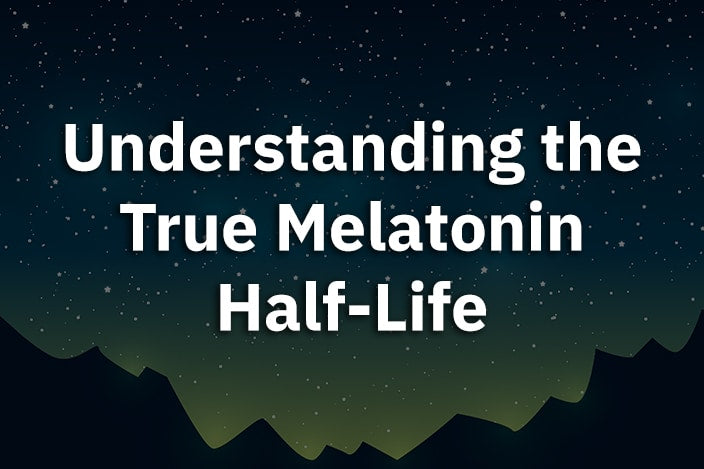Melatonin, a critical hormone produced primarily in the pineal gland, regulates our sleep-wake cycle.
Despite its widespread use in the treatment of sleep disorders, there is a common misconception about its half-life and dosage, which frequently leads to misinformation.
We hope to dispel these myths and provide an accurate understanding of melatonin's half-life in this article, focusing on its impact on sleep quality and overall health.
Misunderstanding Melatonin Half-Life
One common misconception involves melatonin's half-life, or the amount of time it takes for the hormone's concentration in the bloodstream to drop to half its initial level.

A quick online search may yield highly varied and frequently incorrect information, such as claims that melatonin's half-life is extremely short, as low as 20-45 minutes. As a result, many people believe that higher doses of the hormone are not harmful to the body as it is quickly cleared out of the system.
Contrary to popular belief, melatonin's half-life is not as short as it is frequently portrayed.
Melatonin's half-life ranges from 45 minutes to an hour, depending on the individual and the form of supplementation used, according to clinical studies. While this may not seem to to be a significant difference from the 20-minute half-life reported by some websites, it is actually more than double the time, effectively doubling the half-life. When calculating the time required to truly clear melatonin from your system, this can significantly alter the time involved.
Understanding this is critical because it has a direct impact on how long melatonin remains active in our system, guiding us toward more responsible and effective use.
The Overdosing Dilemma: Why Less is More
Despite the fact that melatonin has a relatively short half-life in the body, it's important to note that the dosage in many melatonin supplements far exceeds the amount naturally produced by the body. This can result in abnormally high levels of melatonin in the bloodstream.
Consider a recent scientific study that revealed that a 4mg dose of melatonin can raise serum melatonin levels to a mind-boggling 70 times the normal amount. Despite its short half life, melatonin at such high levels can remain in the bloodstream even after waking.

These high levels of melatonin may actually hinder the sleep-wake cycle, effectively negating the intended benefits of melatonin supplementation. Yes, it may hasten your journey to sleep, but it also has the potential to make you feel sluggish the next day. In the long run, it may cause decreased sensitivity in your melatonin receptors, as well as other potentially harmful effects in the body.
In order to achieve better sleep quality, we must approach melatonin supplementation with a thorough understanding of its pharmacokinetics, aiming for balance rather than excess.
Making Informed Choices for Better Sleep
Understanding the true half-life of melatonin is critical for anyone considering using this supplement for sleep management. Hopefully we have empowered you with knowledge by debunking common misconceptions and emphasizing the risks of overdosing, allowing you to make informed decisions that promote better sleep and overall well-being.
Make sure to check out our article on the proper dosage of melatonin to use for efficacy and safety as a sleep supplement.

